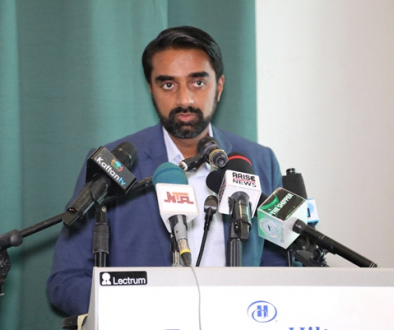For the CBN, have the Chickens finally Come Home to Roost?
So Nigeria has not fallen over because it was de-listed from the J.P Morgan Emerging Markets, Government Bond Index (EM-GBI). JP Morgan suggested that Nigeria’s foreign exchange regime has lacked desirable levels of liquidity and transparency; they also suggested that Nigeria lacked a fully functional two-way market. CBN refuted the JP Morgan claims avowing that all legitimate demands for Forex are being met; all forex transactions now take place on the Reuters trading platforms and are presumably therefore visible to all players but that the official forex window was closed to provide “a level playing field”. The CBN further asserted its move was to curb “speculation”, “round tripping” and “rent seeking”.
What the CBN failed to tell us was, who is behind such behavior? Could it be banks and other financial institutions? If so, does the CBN’s supervisory weakness get fixed by closing down the Forex window? Could it be members of the general public? If so, how did they gain access to such Forex to maneuver themselves into a position to speculate, round-trip and act as gatekeepers extracting rents? Could it be investors (domestic and international)? They may have incentives to speculate on currency trades but round tripping (would involve sourcing from CBN and selling to the parallel market which cannot happen without CBN’s knowledge) and rent seeking? How would they achieve that?
When the Central Bank of Nigeria (CBN) closed the official Forex window, and still continued to sell Forex, it could only have been on a discretionary basis. The CBN licensed some new Bureaus de Change (BDCs) and sold to them after the “official” licensing period had closed. Robert Klitgaard warns that Monopoly + Discretion – Accountability = Corruption. Could certain elements within the CBN have had opportunity to indulge in round tripping in the absence of a Minister to hold them accountable? Are they not the only ones in a position to have exhibited rent-seeking behavior? Could certain persons have indulged in covert speculative trading arrangements (e.g. through BDCs)?
So, if such behavior was observable between January 2015 when Nigeria was placed on JP Morgan’s watch list through the 2015 elections (when it was alleged that up to US$5bn could have been “distributed” by the government of the day) up till the time they took their decision to kick Nigeria out, should it have been a surprise that they imagined the forex regime not to have been transparent? Should we be surprised that the CBN’s defense on the arrival of a new Sherriff was to close the official window to “create a level playing field” suggesting there were some with more privileged access to forex than others?
Analysts suggest the CBN has put up a spirited defense and it seems able to weather the storm of Nigeria’s exit from the JP Morgan EM-GBI simply because liabilities will not top US$3bn and our foreign reserves are some US$30bn. But the real truth of Nigeria’s situation has not been addressed. It appears we had been consuming much more forex than we were generating and using our foreign reserves to shore up a fixed exchange rate position, that is, until our ability to rob Peter to pay Paul in this way, crashed along with oil prices. Investors have long warned that our exchange rate regime was unsustainable but as long as there were high oil prices we postponed the evil day. Well, the chickens have now come home to roost and we must make a choice, to devalue or not to devalue the Naira.
The case for devaluation is quite simplistic. If Nigeria devalues her Naira, our exports will be cheaper relative to hard currencies; devaluation will encourage local production and investment in the provision of goods and services currently imported; our external reserves will be protected (since we will no longer be pushed to squander it on protecting the Naira); and we can correct imbalances in the pricing of our currency. However, devaluation will favour creditors at the expense of debtors and those with goods in stock at that point will do better than those with cash.
The case against devaluation takes into account more complex issues. Higher prices of imports on which we are still dependent will mean higher inflationary pressures; and ordinary people may find life unbearable in the period before production of goods and services to replace imports reach the scale needed to bring prices down. There is a risk of social unrest, which can lead to political unrest and instability and a serious damage to the pride of Nigeria as a State and Nigerians as a whole. The political costs of devaluation may be so high that our leaders balk at it.
Nigeria’s President has ruled out any further devaluation of the Naira for now. For his decision to work, it must be followed by massive government support for local investment – for example by making loan guarantees available to local producers; ensuring producers can find affordable finance to expand their base; ensuring small producers can access the funds they need.
As for the CBN, have the chickens finally come home to roost?



